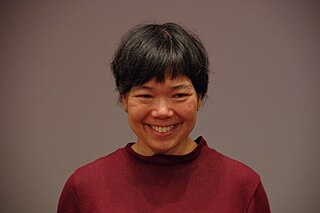Related Research Articles
In ancient times, only the Sun and Moon, a few stars, and the most easily visible planets had names. Over the last few hundred years, the number of identified astronomical objects has risen from hundreds to over a billion, and more are discovered every year. Astronomers need to be able to assign systematic designations to unambiguously identify all of these objects, and at the same time give names to the most interesting objects, and where relevant, features of those objects.
Brian Geoffrey Marsden was a British astronomer and the longtime director of the Minor Planet Center (MPC) at the Center for Astrophysics | Harvard & Smithsonian.

Eleanor Francis "Glo" Helin was an American astronomer. She was principal investigator of the Near-Earth Asteroid Tracking (NEAT) program of NASA's Jet Propulsion Laboratory.

Luboš Kohoutek was a Czech astronomer and a discoverer of minor planets and comets, including Comet Kohoutek which was visible to the naked eye in 1973. He also discovered a large number of planetary nebulae.

Liisi Oterma was a Finnish astronomer, the first woman to get a Ph.D. degree in astronomy in Finland.

David Clifford Jewitt is a British-American astronomer who studies the Solar System, especially its minor bodies. He is based at the University of California, Los Angeles, where he is a Member of the Institute for Geophysics and Planetary Physics, the Director of the Institute for Planets and Exoplanets, Professor of Astronomy in the Department of Physics and Astronomy and Professor of Astronomy in the Department of Earth, Planetary and Space Sciences. He is best known for being the first person to discover a body beyond Pluto and Charon in the Kuiper belt.
Paulo Renato Centeno Holvorcem is a Brazilian amateur astronomer and mathematician who lives in Brasilia, Brazil.

Henry E. Holt was an American astronomer and prolific discoverer of minor planets and comets, who has worked as a planetary geologist at the United States Geological Survey and Northern Arizona University.
Vincenzo Silvano Casulli, usually known as Silvano Casulli was an Italian amateur astronomer and a discoverer of minor planets at his Vallemare di Borbona Observatory in Lazio.
C. Michelle Olmstead is an American astronomer, asteroid discoverer and computer scientist.

Jane X. Luu is a Vietnamese-American astronomer and defense systems engineer. She was awarded the Kavli Prize for 2012 "for discovering and characterizing the Kuiper Belt and its largest members, work that led to a major advance in the understanding of the history of our planetary system".
James Whitney Young is an American astronomer who worked in the field of asteroid research. After nearly 47 years with the Jet Propulsion Laboratory at their Table Mountain Facility, Young retired July 16, 2009.
1971 Hagihara, provisional designation 1955 RD1, is an Eoan asteroid from the outer region of the asteroid belt, approximately 12 kilometers in diameter.
David D. Balam is a Canadian astronomer and a research associate with University of Victoria's Department of Physics and Astronomy, in Victoria, British Columbia. Specializing in the search for Near-Earth objects, Balam is one of the world's most prolific contributors to this research; only two astronomers have made more such discoveries than Balam. He is credited with the discovery or co-discovery of more than 600 asteroids, over a thousand extra-galactic supernovae, and novae in the galaxy M31. Balam is also co-credited for the 1997 discovery of Comet Zhu-Balam.
Walter Ferreri, originally from Buddusò in Sardinia, is an astronomer at the Italian Osservatorio Astronomico di Torino, science writer and discoverer of minor planets.
Clifford J. Cunningham is a Canadian-Scottish professional astronomer and author of numerous books on asteroids.
Hiroki Kosai is a Japanese astronomer with the Kiso Observatory. He is best known for helping to popularize astronomy in Japan and for his observations of comets and asteroids, most notably with his co-discovery the comet 1976 XVI. He is credited by the Minor Planet Center (MPC) with the discovery of nearly 100 asteroids.

Erwin Obermair was an Electrician, Austrian amateur astronomer and co-discoverer of asteroids.
(457175) 2008 GO98 (provisional designation 2008 GO98) with cometary number 362P, is a Jupiter family comet in a quasi-Hilda orbit within the outermost regions of the asteroid belt. It was discovered on 8 April 2008, by astronomers of the Spacewatch program at Kitt Peak National Observatory near Tucson, Arizona, in the United States. This presumably carbonaceous body has a diameter of approximately 15 kilometers (9 miles) and rotation period of 10.7 hours.
References
- 1 2 "12871 Samarasinha". Minor Planet Center. Retrieved 29 January 2022.
- ↑ “Anuradhapura”, another far off Asteroid
- ↑ Lankan astronomer’s voyage of discovery with Comet Hartley 2
- ↑ Celestial honour for Lankan astronomer
- ↑ Nalin Samarasinha
- ↑ "MPC/MPO/MPS Archive". Minor Planet Center. Retrieved 29 January 2022.
- ↑ Celestial honour for Lankan astronomer
- ↑ "Asteroid (607372)". Minor Planet Center. Retrieved 29 January 2022.
- "Overview of Dr. Nalin Samarasinha's ISON morphology campaign" (PDF). isoncampaign.org.
- "Sigiriya: Asteroid that's far away". colomboherald.
- "Nalanda College Alumni (Academics)". Nalanda College Colombo. Archived from the original on 19 May 2014.